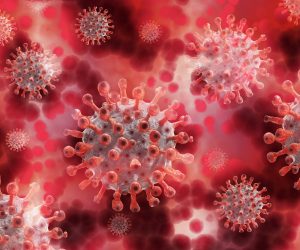
The Difference Between Being Patient Vs. Enabling Toxic Behavior
Dr. Caroline Leaf – In this podcast (episode #249) and blog, I discuss the difference between enabling and empowering someone. Simply put, enabling is doing something challenging for someone else, while empowering someone means helping and supporting them as they complete the challenging task. Think of those school projects you did as a child; enabling is your mom doing the whole project for you, while empowering is your mom helping you do your own school project.
Enabling teaches the person being enabled that someone else will always fix or solve their issues for them, or make the consequences go away. When someone is struggling with an issue, they can quickly become reliant on the person or persons who are enabling them, instead of developing the self-regulation needed to heal and move forward.
There is often a fine line between enabling and empowering someone. This makes it hard to know what the best thing to do is in any given situation, especially if we are trying to help a loved one. So, how do we know when we are approaching that line?
Of course, most of us genuinely want to help others. That’s one of the many beautiful qualities of being human! As a mother, when I see my children in pain, I am heartbroken and want to absorb their pain and take it away—I often do not want to let them suffer or face the consequences. But, in most cases, I cannot and should not do this, as it can end up causing more harm than good, crippling their own ability to handle life.
We need to recognize there is a certain level of “messiness” and pain involved in life—this is inevitable, especially when you’re trying to help those you care for. It can be very complicated and hard to do. How do say no? When do you need to say no? What if you don’t want to hurt the people you care about? Could saying no damage the relationship? Are you fearful of what they might do if you don’t step in and take on the burden?
One thing that has helped me in my life is using my 5-step Neurocycle mind-management technique to examine a situation to help me deal with all this messiness, manage my emotions and find out if I am helping someone I love or enabling them.
First, I gather awareness of the situation:
I become aware of a situation I am (or were in), including the emotional and physical warning signals I experience as I think about this situation. Am I feeling feeling unhappy, frustrated, confused, wary or angry? Do I feel heart palpitations or stomach pains?
Tuning into these warning signals, responding to them and questioning them will take you deeper into your own mind and help you recognize the difference between enabling and empowering in this situation. This allows you can make the best choice for you and your loved ones.
Then, I reflect on these signals:
In this step, I essentially put my thoughts and feelings on trial and ask, answer and discuss them to find out what the physical and emotional warning signals are telling me about whether I am empowering or enabling the person in my life.
Here are some useful questions I use to guide my thinking in this step:
- Is what I am doing keeping someone from having to face the consequences of their own behavior, or is it pointing them in the direction of facing the consequences and therefore teaching them how to self-regulate and build up their mental resilience?
- Is the help I am giving taking away an opportunity for this person to do something on their own, gain self-esteem and improve their self-regulation, or is it giving them that opportunity?
Next, I write down my thoughts:
This helps me regulate and organize my thinking.
I then recheck what I have discussed and written down:
I reread what I wrote to find patterns and triggers and to reconceptualize the situation so I can make better choices moving forward.
Here are some questions I find useful in this step:
- Do I have a pattern of enabling this person?
- Do I feel conflicted when I help them?
- Do I resent the person I am helping because they don’t seem to appreciate it, or they haven’t used the help to improve their situation? Are my expectations fair?
- Did I create this situation? Why?
I then take action to remedy the situation (I call this an active reach):
The active reach is a summary action, like a period at the end of the sentence, that you can do to help you gain mental peace and change to toxic situation into a positive one.
When it comes to enabling someone, this doesn’t mean you must stop helping them altogether. It just means you should find better and healthier ways to empower them—to show them compassion, empathy and love in a way that will do them good rather than harm.
Here are some active reaches to help you move from enablement to empowerment:
- One of the best ways to empower someone is to approach every relationship you are a part of with a healthy sense of your own boundaries. If you balance kindness with being able to say “no” when you or the other person is stepping over these boundaries, then you will be in a better position to help someone without enabling them or creating a toxic situation where they fully depend on you.
- Recognize that each person must take full responsibility for their own self-care (emotional, physical and spiritual), with the knowledge that no other human being can do this for them. When you cannot help yourself, it is of course healthy to ask for help, but we all need to learn how to do so without feeling entitled to this help.
For more help on managing your mental mess using the Neurocycle technique, listen to my podcast(episode #249), preorder my new book Cleaning Up Your Mental Mess (and receive exclusive bonuses!) and check out my SWITCH appand our most recent clinical trials.
To read the original article click here.
For more articles from Dr. Leaf click here.






